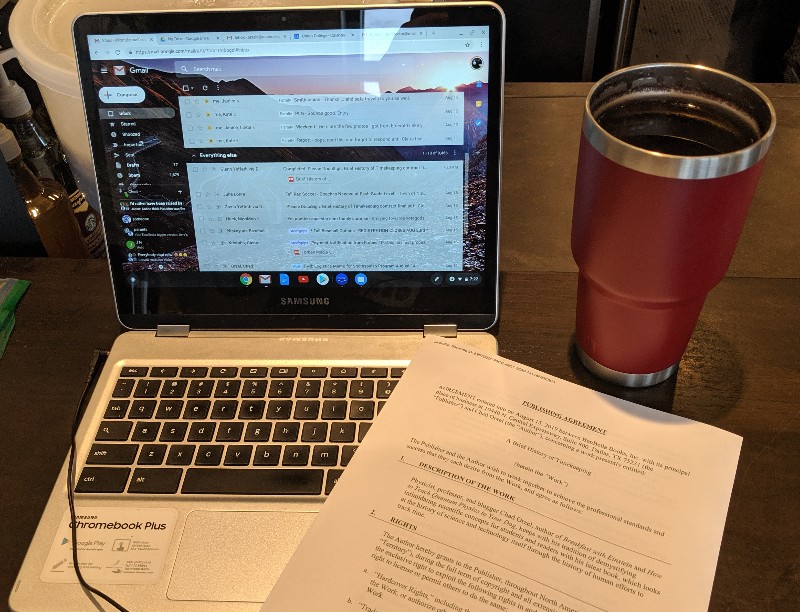Long-time Giants quarterback Eli Manningannounced his retirement Friday after 16 years with the Giants. The last couple of years haven’t been great for him, with lots of people in sports media, and even some Giants fans, lining up to blast him as mediocre to bad. I think that’s largely a mistake.
Part of the problem is that most football fans vastly overrate the importance of “skill position” players relative to the line. The offensive line in particular is grievously underrated, mostly because there aren’t obvious flashy statistics for line play. Quarterback performance is hugely reliant on the offensive line, and Manning was hampered for years by playing behind some really awful blockers, because the Giants ownership tend to be cheap that way. He did remarkably well as a passer considering how regularly he had rushers right in his face. It’s not terribly surprising that arguably his greatest moment is a play where he had to pull away from what seemed an obvious sack to get free for a pass, because he had to do that all the time.
He gets slagged a bit for the Giants’ poor record outside of those two Super Bowl runs, but this sort of overlooks the bit where the Giants were 11-1 in 2008 and putting up great numbers before Plaxico Burress shot himself in the leg. They were a dominant team for most of that season, but the loss of Burress and the furor around his armed jackassery threw the team off and they never recovered.
Burress is also a good example of one of the things that I think is maybe the best testament to Manning as a QB. The signing of Burress is really the one time in the Manning era the Giants front office went out and got a “skill position” player in free agency, a move that was widely considered underwhelming at the time (Burress was the second or third-best receiver for the Steelers before that). Other than that, they were lining up either guys they drafted, or cast-offs from other teams.
What speaks well about Manning is the number of times through his tenure that reporters and pundits would talk about these guys as “all the offensive weapons” for the Giants. And also how many of them left New York for more money with other teams only to do nothing: guys like Hakeem Nicks, Kevin Boss, even the recipient of Manning’s other great Super Bowl play, Mario Manningham. These guys looked like really good receivers when they were with the Giants, but never did anything after they left. This doesn’t mean they withered after leaving the care of the Giants’ ace training staff; instead, I suspect that they were never actually all that good, but were made to look better by Manning throwing to them.
Which is not to say that Manning was a flawless quarterback. Nobody else in the history of the NFL has had quite the same gift for sailing a ball about eight feet over the head of a wide-open receiver (often to an opposing safety). And Eli had a tendency to attempt passes he really shouldn’t, trying to force the ball to well-covered receivers when he should’ve just chucked it into the stands to keep possession. He retires with a terrible touchdown-to-interception ratio, and most of that denominator was pretty directly his fault.
But the most important thing about him was that for fifteen years, he was there for every game. Until the very end there was no controversy about who would be playing quarterback for the Giants, and in the perpetual feeding frenzy that is the New York sports media scene, you can’t put a value on that. I mean, just look at the Jets.
For a star athlete in the New York market, there are really only two ways to succeed: you can either be a flamboyant larger-than-life figure, or you can be the boringest guy on Earth. The former has its benefits when it works out (see “Strahan, Michael”), but also a limited shelf life– the only thing the New York media like more than building up a larger-than-life figure is tearing them down. The boring path is harder to stay on, but really about the only way to have a long and successful career in New York.
Happily for Eli Manning, and the Giants, I’m not sure there’s ever been another NFL player more temperamentally suited to walk the boring path. He was relentlessly calm in the face of one of the most frenetic media cultures in the world, and that helped him keep his spot and keep the team stable for a decade and a half. And as a result, he leaves the Meadowlands as a beloved figure.
It’ll be interesting to see what he does after football. He doesn’t have the same pitchman energy as his more ubiquitous brother, though his few forays into media have shown a sneaky good sense of humor. It’s a little hard to see him making a second career in the media, but in a weird way, he might be good at it.
Whatever he does, though, I wish him the best. There are some things that could’ve gone better while he was playing, but he had clearly the best career of any QB I’ve seen with the Giants, and those two Super Bowl runs were magical. Whatever the stats say, I’ll always regard him as one of the greats.

